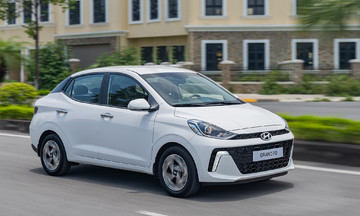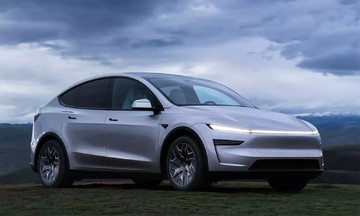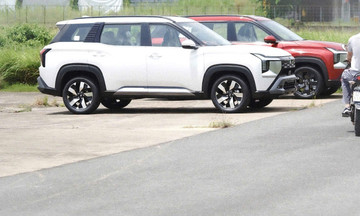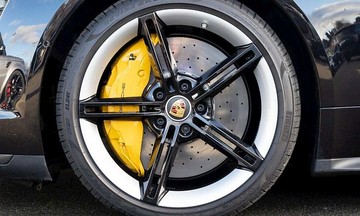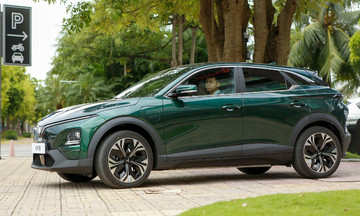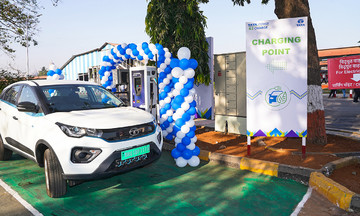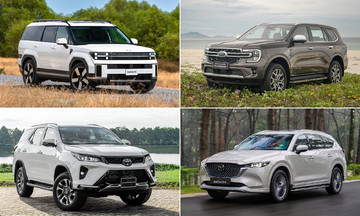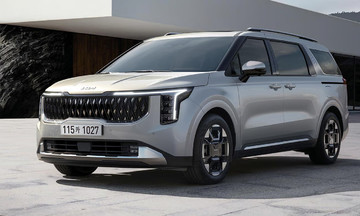The Trump administration's easing of regulations on electric vehicles has opened the door for the auto industry to continue selling larger, fuel-consuming vehicles.
US automakers are abandoning plans made when electric vehicles were in high demand and government regulations mandated investment in cleaner, more fuel-efficient engines.
"This is a multi-billion dollar opportunity over the next several years," Ford CEO Jim Farley said last week. He stated that Ford has adjusted its product portfolio, scaled back electric vehicle plans, and is seeking to capitalize on the demand for large SUVs and commercial vehicles.
After the predicted boom in electric vehicles in the US failed to materialize, former President Trump and Congress rolled back regulations they believed were designed to force American consumers into battery-powered cars.
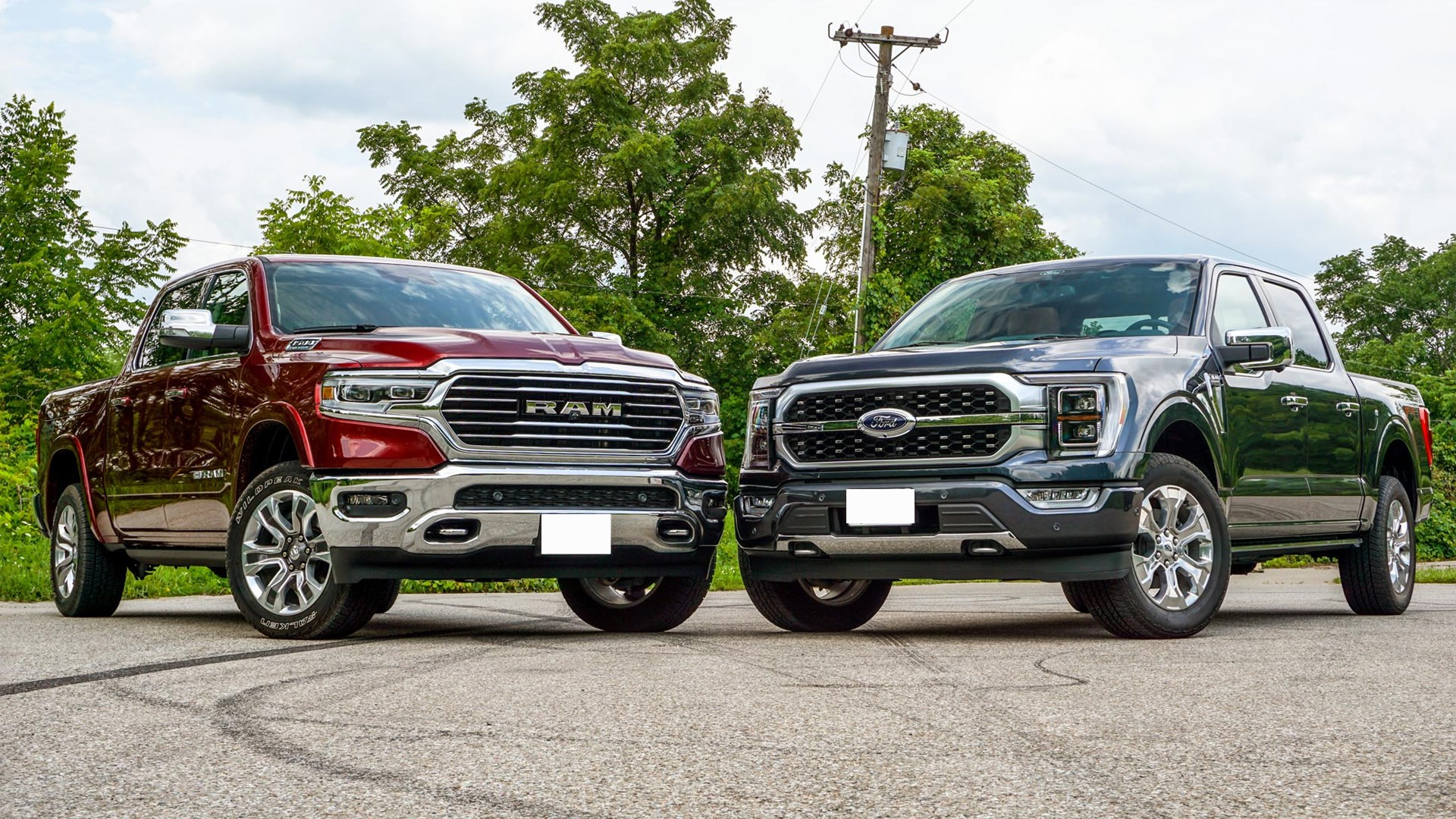 |
Two competitors in the US pickup truck market: Ram 1500 and Ford F-150. Photo: Twin Pine Ford |
Two competitors in the US pickup truck market: Ram 1500 and Ford F-150. Photo: Twin Pine Ford
The result was the stripping of California's ability to set its own emissions standards, the elimination of greenhouse gas regulations, and the removal of costly fuel economy penalties. This led Detroit automakers to openly praise the extended lifespan of the internal combustion engine.
This rapid shift in perspective illustrates how auto industry leaders are adapting to the new regulatory landscape.
"The auto industry is evolving very, very quickly," said Tyson Jominy, senior vice president of data and analytics at J.D. Power. "But returning to existing technology is faster than investing in and preparing for new technology."
Automakers declined to further discuss their plans. Each company stated they would continue investing in electric vehicles and other technologies, albeit at a level they believe is more aligned with current consumer demand. For example, Ford plans to announce a new electric vehicle strategy next week and opposed some of the most drastic deregulation measures.
The policy changes will help offset Trump's auto tariffs, which are costing companies billions of USD this year, and allow them to overhaul vehicle lines that, until recently, were slated to be replaced by electric vehicles. The industry will also save on regulatory credits designed to offset potential fuel consumption and emissions penalties.
Since 2022, Ford, GM, and Stellantis have collectively paid nearly 10 billion USD for regulatory credits and fines for violating fuel economy regulations.
GM, which until recently declared its hope to eliminate internal combustion engines by 2035, has touted the benefits of maintaining them to investors.
In a recent call with analysts, Stellantis pointed to the auto-specific provisions in Trump's "MAGAnificent Seven" as an opportunity for the company to bring a better mix of gasoline and electric vehicles to market.
"This will give us a lot of additional profit," said CEO Antonio Filosa.
The automaker has new platforms that allow for a variety of gasoline, hybrid, and electric vehicles to be released soon, and its strategy to offer these options remains in place as it assesses recent policy changes.
Last week, Stellantis, which owns the Chrysler and Dodge brands, began adding overtime shifts at a Michigan plant to quickly ramp up production of its popular Ram 1500 pickup truck.
This decision wasn't explicitly tied to the recent regulatory changes. However, Stellantis will benefit from the new environment, no longer facing penalties for violating fuel economy regulations, which have cost it hundreds of millions of USD.
"Americans love to buy big vehicles," said Adam Lee, chairman of Maine-based Lee Auto Malls. "They'll see how many more large SUVs they can make, because they sell a lot of them and make a lot of money on them."
Lee expressed concern that the truck-focused strategy could backfire in the long run. He hopes automakers, especially those in Detroit, will keep their promises to continue improving electric vehicles.
"Otherwise, we'll find ourselves as the only country in the world not embracing fuel-efficient and electric vehicles," he said.
A potential dilemma for Detroit is that some of the most in-demand gasoline-powered vehicles—affordable compact crossovers like the Chevrolet Trax—aren't their biggest earners.
Sam Fiorani, who forecasts global vehicle production and sales for AutoForecast Solutions, said the competition in the high-margin large SUV and pickup truck segment is already fierce.
But with higher tariffs and relaxed emissions standards, Fiorani predicts that the renewed focus on gasoline vehicles will lead automakers to raise prices on larger models.
"Going forward, they'll lose less on EVs and make more on traditional internal combustion engine vehicles," he said.
Matt Bowers, owner of dozens of dealerships in New Orleans and surrounding areas, said internal combustion engines are in high demand. He said those eager for fuel efficiency are often drawn to smaller SUVs rather than electric vehicles. The regulatory changes allow companies to "just make what people want, and that's probably a pretty good idea."
Anticipating the regulatory shift, Detroit auto companies have begun preparing plants across the US and Canada to produce more gasoline-powered cars and trucks, especially as the outlook for electric vehicles dims.
Ford canceled plans to produce a three-row electric SUV in Canada, at a facility that will now produce heavy-duty pickup trucks.
GM abandoned plans to manufacture electric motors at a New York plant in favor of producing more V8 engines.
Until recently, GM CEO Mary Barra spoke of the company's vision to transition to 100% electric vehicles by 2035. The company is still rolling out new electric models, and she believes they will one day be a common sight on American roads.
But now, she is touting gasoline vehicles, reflecting the astonishing speed of the shift in an industry where change typically occurs over years, not months.
"This also gives us the opportunity to sell EVs," Barra said in a recent earnings call, before correcting herself. "Excuse me, internal combustion engine vehicles, for longer and capitalize on the profitability of those vehicles."
My Anh (according to WSJ)



